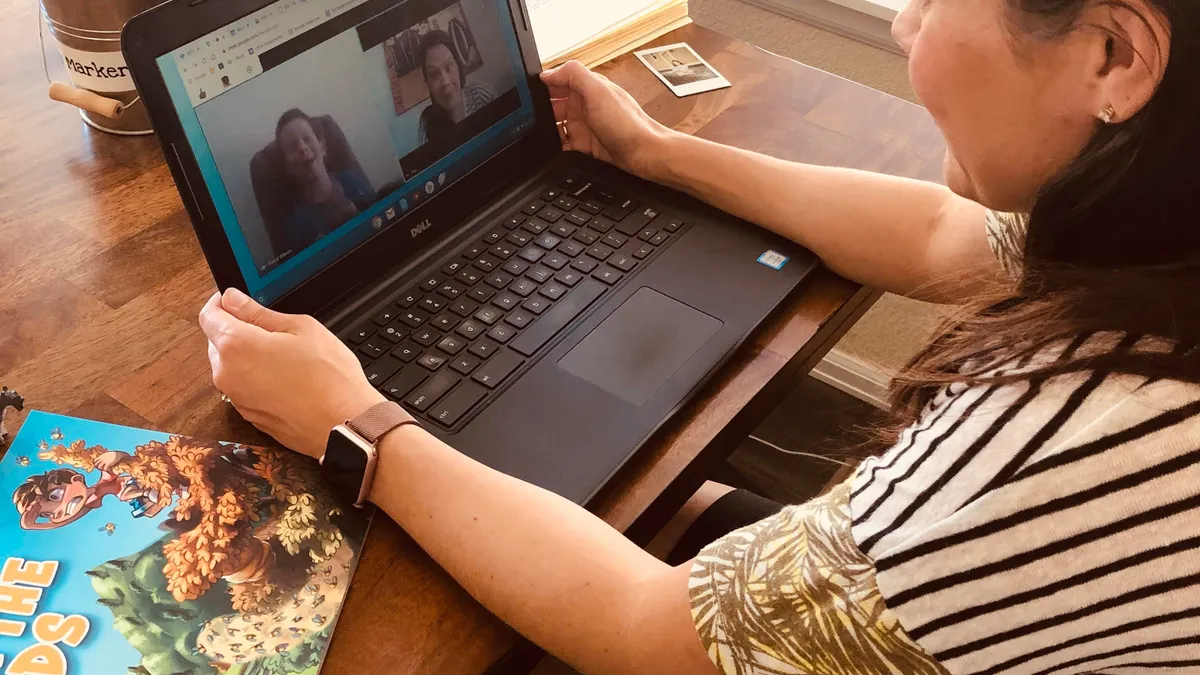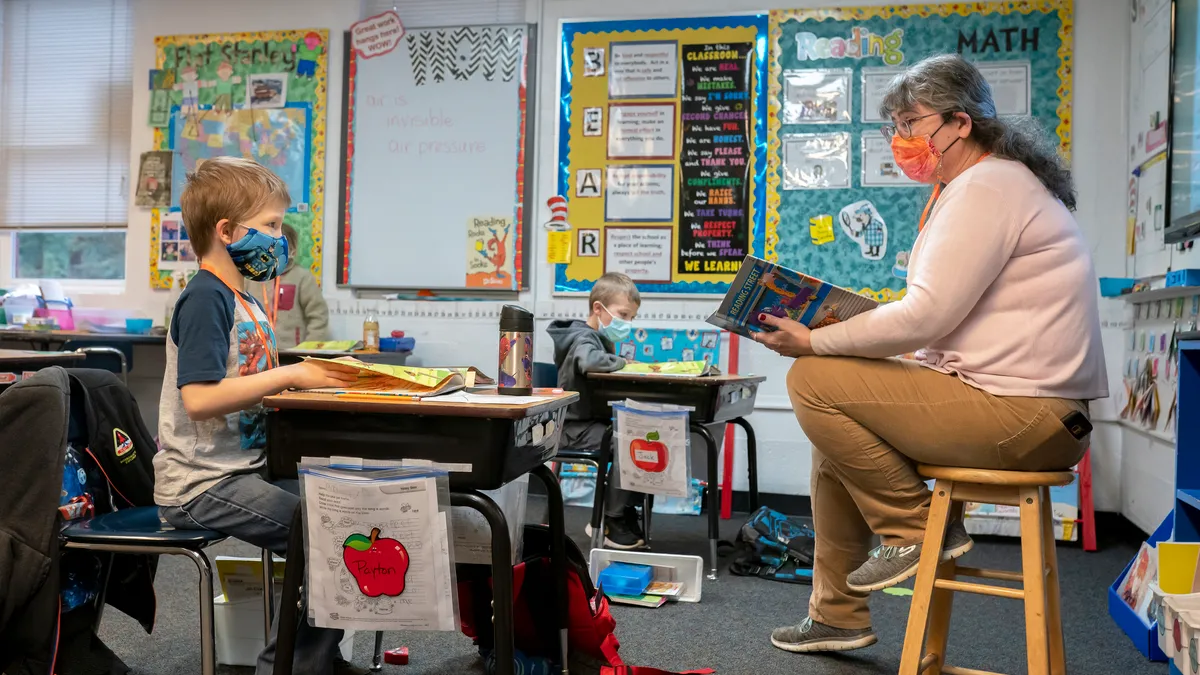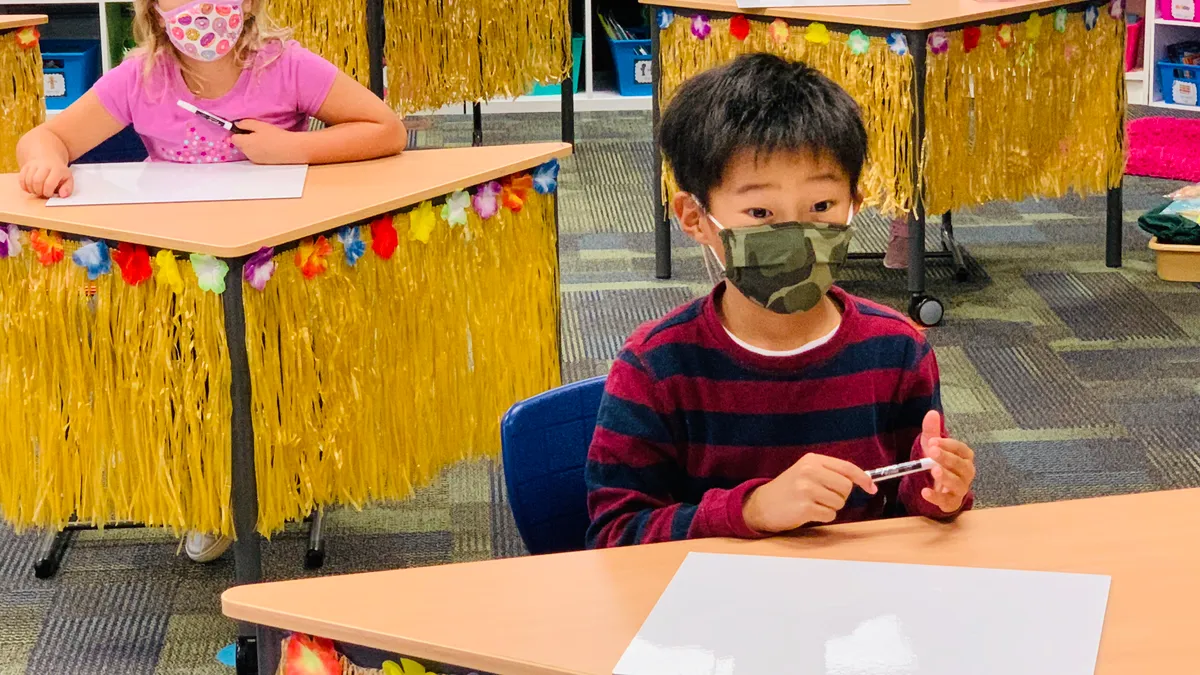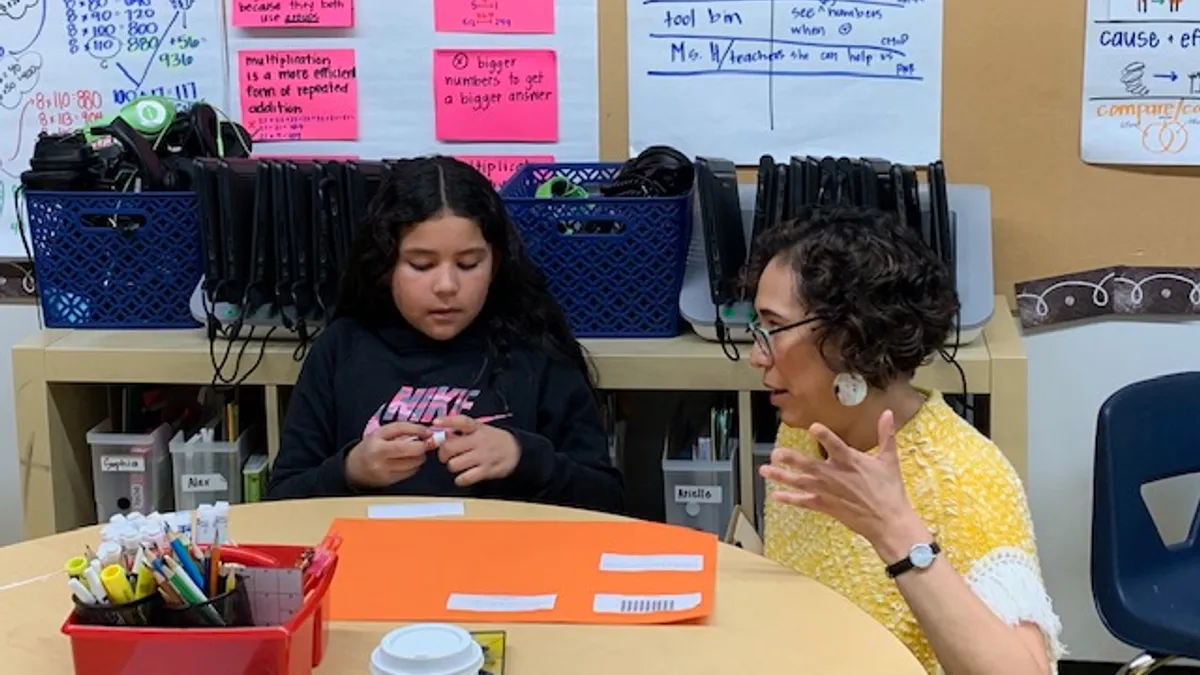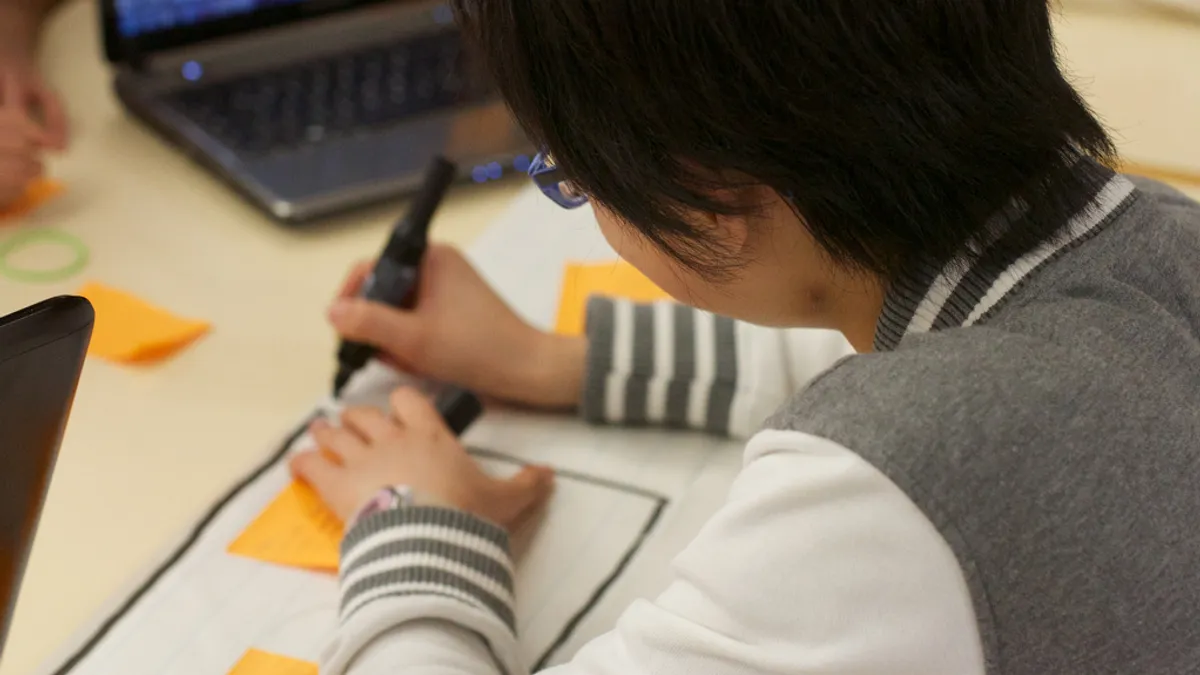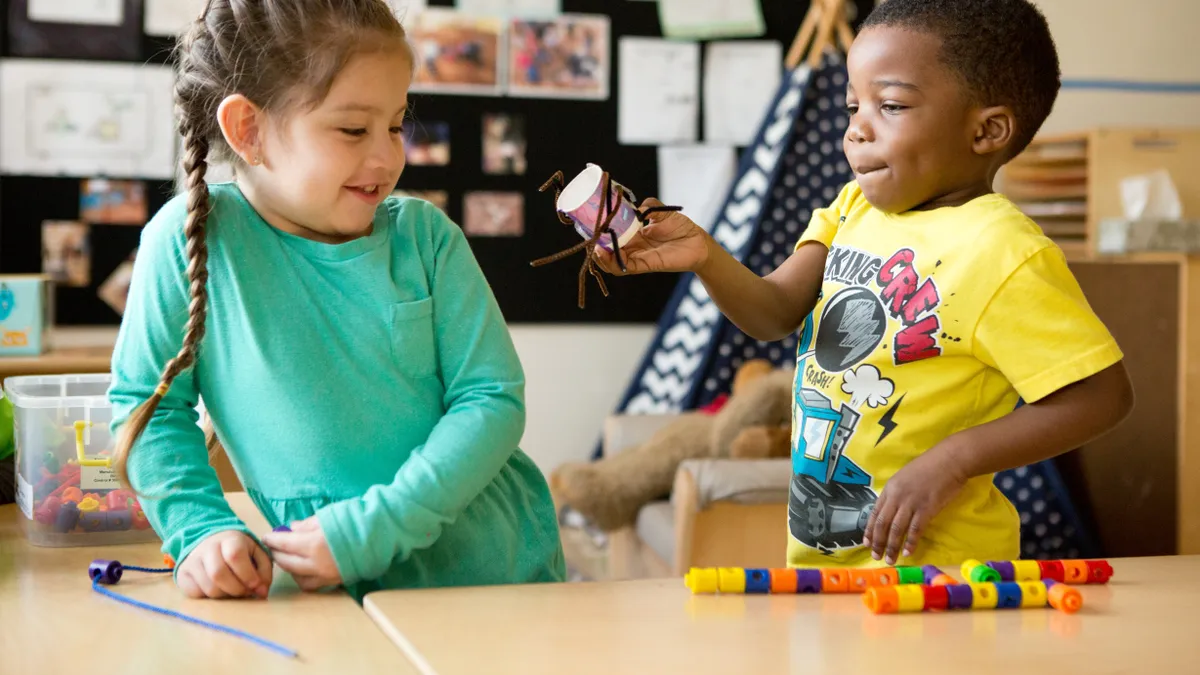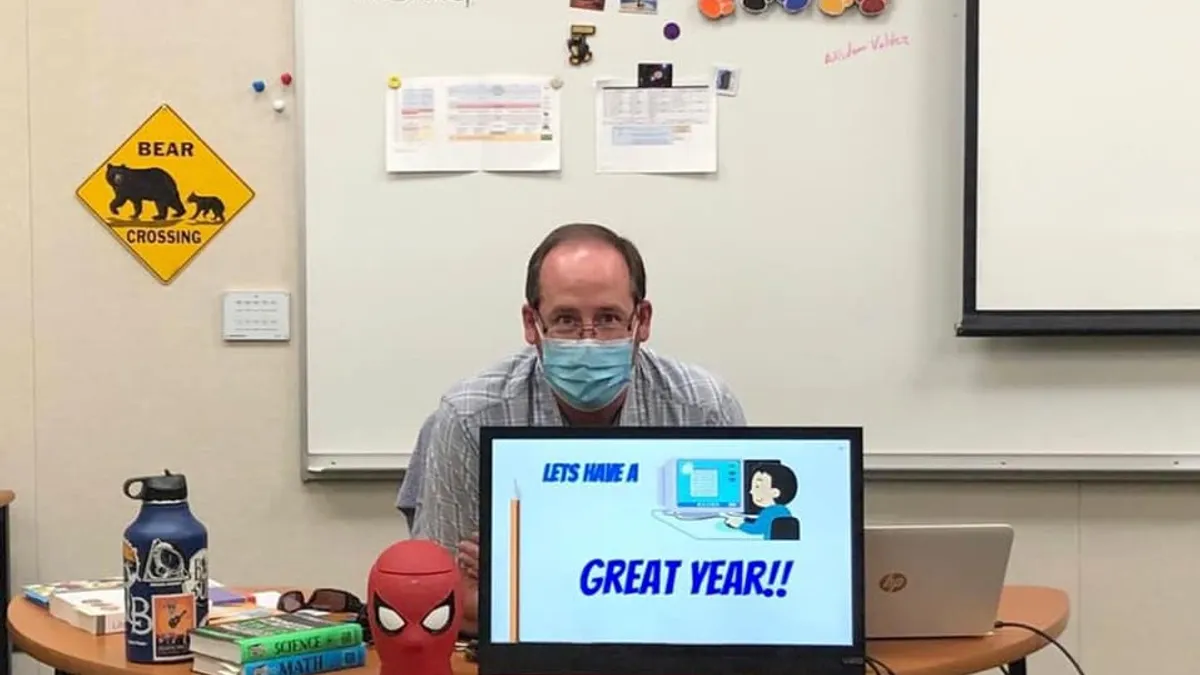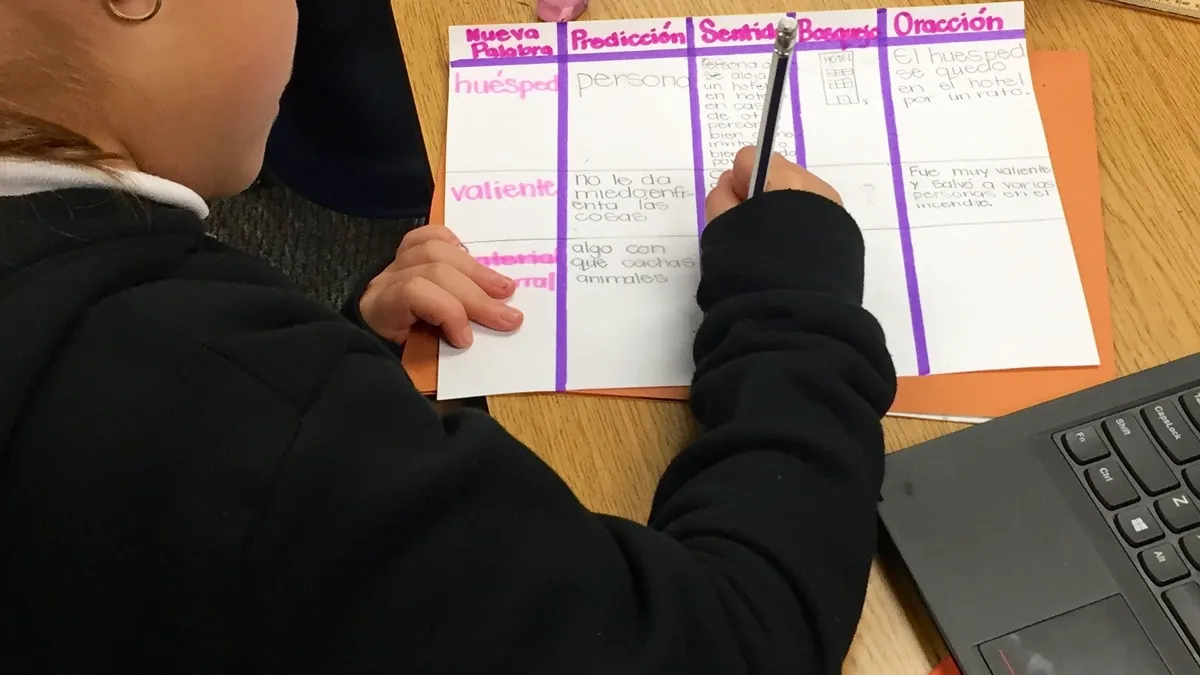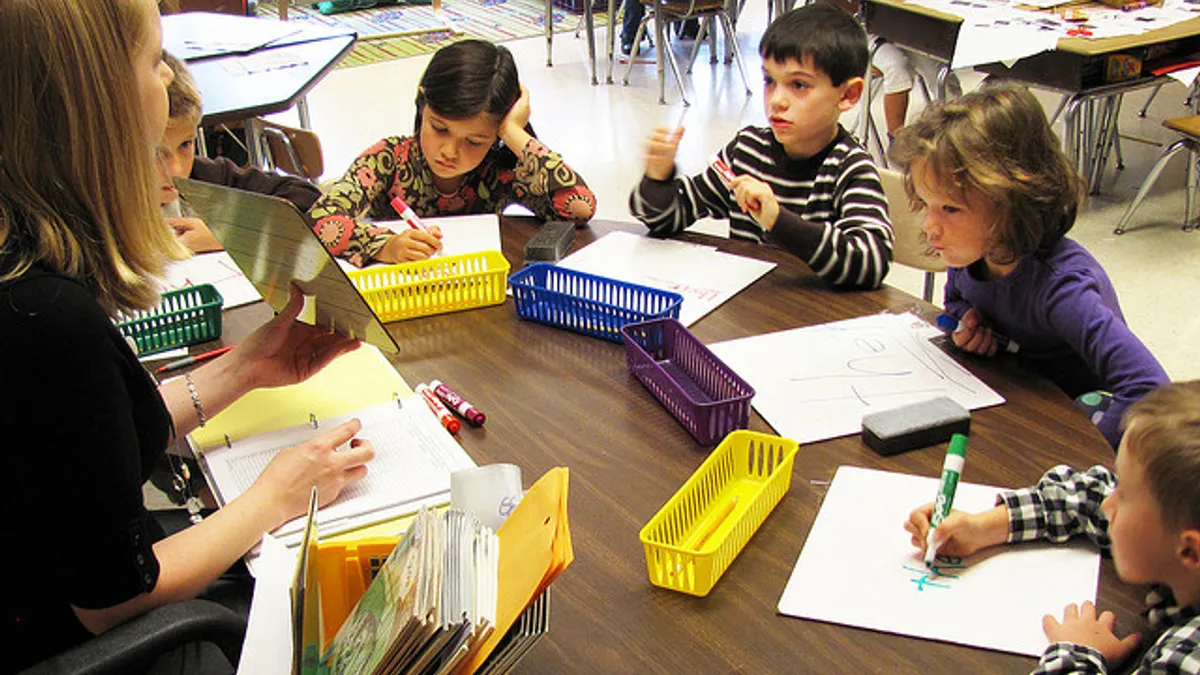Curriculum: Page 34
-
Unvetted digital resources remain potential school data privacy risk
Tools hastily adopted during the transition to remote learning as a result of COVID-19 should also be revisited to gauge effectiveness.
By Shawna De La Rosa • April 28, 2021 -
How can SEL help students transition back to in-person learning?
As students reacclimate after a year spent mostly remote, practices focused on their emotional and mental health needs will be crucial.
By Lauren Barack • April 28, 2021 -
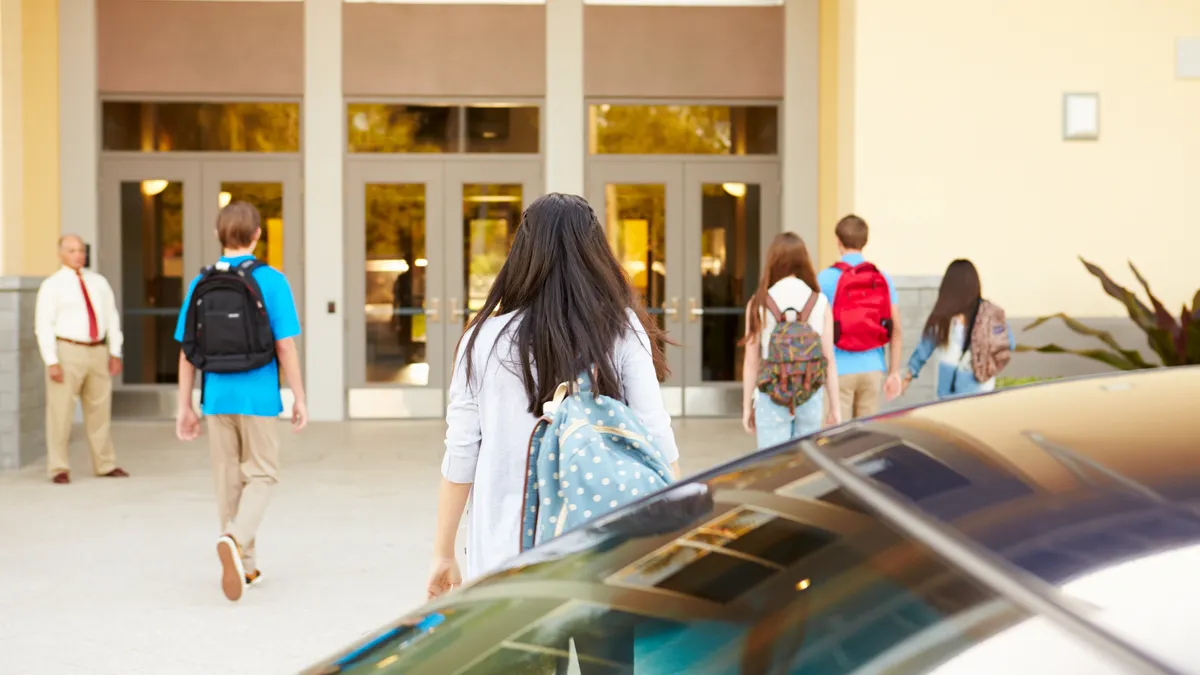 Explore the Trendline➔
Explore the Trendline➔
 Stock Photo via Getty Images
Stock Photo via Getty Images Trendline
TrendlineTop 5 stories from K-12 Dive
K-12 Dive has gathered some a selection of our best coverage from 2024 so far as a one-stop resource on the trends to watch in the months ahead.
By K-12 Dive staff -
5 qualities of effective in-school tutoring programs
High-impact tutoring programs are designed to be equitable, accelerate learning and engage students, experts said during a Tuesday webinar.
By Kara Arundel • April 23, 2021 -
Can changing the way books are sorted inspire young students to read more?
A Denver Public Schools educator suggests sorting books by genre rather than literacy level encourages young readers to tackle more advanced material.
By Shawna De La Rosa • April 21, 2021 -
Deep Dive
How to weave real-world phenomena into science lessons
From vaccine development to climate change, these examples can help students find relevance in what they're studying.
By Lauren Barack • April 21, 2021 -
How can curriculum reflect the importance of mental health in returns to school?
Refocusing what class time looks like, with more emphasis on SEL aspects of curriculum and rebuilding a sense of community, may be key.
By Lauren Barack • April 21, 2021 -
Opinion
Closing the enrichment gap matters now more than ever
Officials from The Primary School detail how the pandemic has widened the gap in available learning opportunities beyond core curriculum.
By Meredith Liu and Vida Amanat • April 21, 2021 -
Opinion
The implications of testing flexibility on measuring student growth and learning trends
Former state officials from South Dakota and North Carolina write ed leaders and policymakers must understand the promise and limits of flexible options.
By Melody Schopp and Angela Quick • April 16, 2021 -
Art programming expands student voice, SEL opportunities
Opportunities in the arts provide students an outlet to creatively share their experiences, needs and goals while also managing stress.
By Shawna De La Rosa • April 14, 2021 -
Remote learning underscores need for lessons on copyright, fair use
Educators can use their own experiences sourcing materials to help students understand how to safely select, attribute and use resources created by others.
By Lauren Barack • April 14, 2021 -
How to help students navigate anti-Asian racism
A pair of teachers have created lesson plans and guides for helping students navigate the current wave of violence and apply historical context.
By Shawna De La Rosa • April 14, 2021 -
Maintaining STEM engagement in hybrid, remote learning
Disruptions to in-person learning have required STEM educators to adapt and create alternatives for hands-on, interactive lessons.
By Shawna De La Rosa • April 7, 2021 -
Amid teaching shortages, can educators in related subject areas fill gaps?
When educators in specialized subjects like physics aren't available, additional support and PD can help other math or science educators fill the roles.
By Lauren Barack • April 7, 2021 -

 Stojkovic, Nenad. (2020). "Online teaching. Little girl working on the laptop." [Photograph]. Retrieved from Flickr.
Stojkovic, Nenad. (2020). "Online teaching. Little girl working on the laptop." [Photograph]. Retrieved from Flickr.
Can UDL strategies bridge learning divides as schools move to reopen?
The Universal Design for Learning framework can help optimize lessons across in-person, online and hybrid models, an educator suggests.
By Shawna De La Rosa • March 31, 2021 -
Pop culture can expand windows through which to view curricula
Using comics, film, TV or other student interests can frame topics in relatable perspectives while providing opportunities for choice in demonstrating learning.
By Lauren Barack • March 31, 2021 -
Study: Audio-based literacy expands early learners' vocabularies
Researchers found the use of interactive, pre-recorded storybooks significantly improved at-risk preschoolers' vocabularies, with gains including words such as "disappointed," "enormous," "brave" and "protect."
By Roger Riddell • March 30, 2021 -
How are educators overcoming hybrid learning pain points?
Building norms and systems for participation can foster a sense of community that connects both students learning in-person and those attending virtually.
By Shawna De La Rosa • March 24, 2021 -
Using mysteries to build critical thinking into curriculum
Assignments requiring collaboration and deductive reasoning to arrive at a solution based on a series of clues can be built into a variety of subjects.
By Lauren Barack • March 24, 2021 -
As support for LGBT-inclusive curricula grows, districts navigate persistent challenges
Five states have mandates for LGBT-inclusive curricula, but experts say navigating pushback and supporting educators are ongoing struggles.
By Lauren Barack • March 24, 2021 -
Review of 41 California districts finds lack of adequate EL learning continuity plans
The report's findings from a small sample of districts suggest a need to focus on culturally competent family and student outreach and engagement.
By Naaz Modan • March 19, 2021 -
Study: Michigan reading law improving student literacy
Educators still question the law's requirement to retain students in 3rd grade who aren't reading at level, but they feel its literacy supports have helped.
By Shawna De La Rosa • March 17, 2021 -
Roundup: How are schools inspiring and engaging students a year into the pandemic?
With schools nationwide transitioning from all-virtual back to in-person learning, we've gathered some of our recent coverage on best practices.
March 17, 2021 -
Choice in school assessments can relieve student stress
By rethinking assessments, educators can offer students more options in how their learning is evaluated, writes a South Carolina teacher.
By Lauren Barack • March 17, 2021 -

 May, Charlotte. Retrieved from Pexels.
May, Charlotte. Retrieved from Pexels.
SXSW EDU: 4 effective ways to bring students of color back to learning
Meaningful relationships, engagement practices, mental health initiatives and policy reviews are among measures necessary to support students of color and other marginalized learners, panelists said.
By Naaz Modan • March 15, 2021 -
Elementary reading development stalled during pandemic
Stanford researchers found the reading fluency of 2nd- and 3rd-graders was most affected, approximately 30% behind where it would typically be.
By Shawna De La Rosa • March 10, 2021

